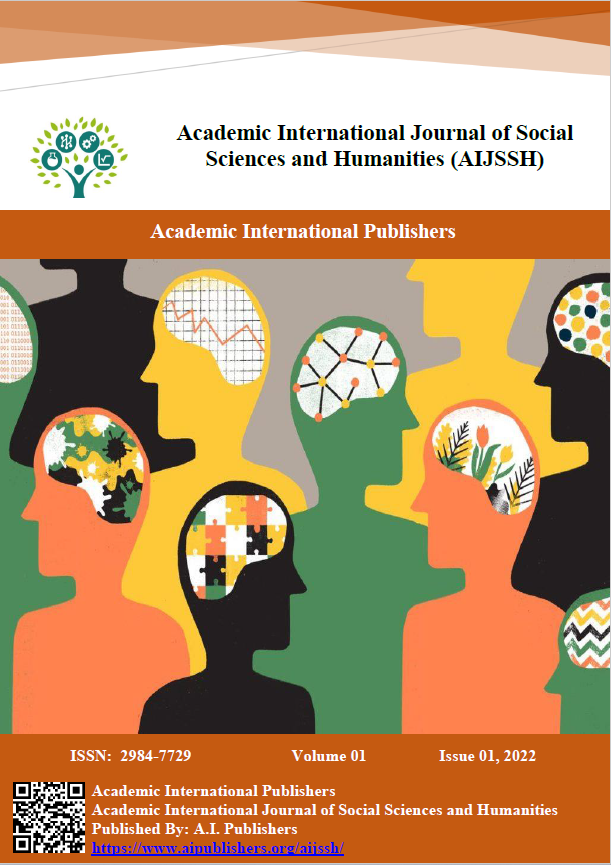Compliment Responses Among Sudanese Learners at Sudan University for Science and Technology
DOI:
https://doi.org/10.59675/S124الكلمات المفتاحية:
communicative competence, compliments, strategies, Sudan, studentالملخص
Speech acts that express and indicate cultural values are compliments. Many of the values represented by means of compliments are possessions, personal appearance, new acquisitions, skills, and talents. It is particularly significant when it comes to social language interactions. According to the data, the most employed strategy types in formal and informal contexts fall within traditionally indirect strategies. Participants' responses of compliment analyzed by following strategies that conducted by Holmes' (1986). The result is that, almost all students tend to accept compliment in one way or another. The study recommends that advanced English language students should be aware of the sociolinguistic aspects of communicative competence, and teachers and lecturers should educate their students those conversations cannot be built only with a good sentence structure, but they need to know social and cultural aspects of communication, along with other recommendations.
المراجع
Austin, J. L. (1962). How to Do Things with Word (2nd ed.). Oxford: Oxford University Press.
Brown, P., & Levinson, S. C. (1987). Politeness: Some universals in language usage (Vol. 4). Cambridge university press.
Byram, M. (2008). From foreign language education to education for intercultural citizenship: Essays and reflections (Vol. 17). Multilingual Matters.
Falasi, H. (2007). Just Say “Thank You”: A Study of Compliment Responses. The Linguistics Journal, 2(1). Retrieved February 12, 2008.
Farghal, Mohammed and Madeline Haggan 2006. Compliment behavior in bilingual Kuwaiti college students. International Journal of Bilingual Education and Bilingualism 9(1): 94–118.
France, P. (1992) Politeness and Its Discontents: Problems in French Classical Culture. Cambridge: Cambridge University Press.
Fraser, B. (1990). Perspectives on Politeness. Journal of Pragmatics, 14, 219-236.
from http://www.linguistics-journal.com/April_2007_haf.
Fujimura- Wilson, K. (2014). A cross-cultural study of compliments and compliment responses in conversation. English and American Literature, 49, 19-36.
H. Roen (1992) Complimenting and Involvement in Peer Reviews: Gender Variation. Cambridge University Press, pp. 27-57.
Han, Chung-hye. 1992. A comparative Study of Compliment Responses: Korean females in Korean interactions and in English interactions. Working Papers in Educational Linguistics, 8(2): 17-31
Herbert, Robert K. 1986 Say “thank you” – Or something. American Speech 61: 76–88.
Herbert, Robert K. 1990 Sex-based differences in compliment behavior. Language in Society 19: 201–224.
Herbert, Robert K. 1990 Sex-based differences in compliment behavior. Language in Society 19: 201–224.
Holmes, J. (1988). Paying compliments: A sex-preferential politeness strategy. Journal of Pragmatics, 12: 445-465. [9]
Holmes, J. 1986. Compliments and compliment responses in New Zealand English. Anthropological Linguistics 28:485 – 508.
Holmes, J. 1995. Women, Men and Politeness. London and New York: Longman.
Kasper, G. and Schmidt, R. (1996)" Developmental Issues in International Pragmatics".
Leech, G. (1983) Principles of Pragmatics. Longman: Longman Group Limited, New York.
Nelson L.G. et al. 1993. Egyptian and American compliments: Across-cultural study. International Journal of Intercultural Relations, 17(3): 293-313.
Qanbar, N. (2012). Compliments In the Yemeni Society: A Sociolinguistic Perspective. GEMA Online Journal of Language Studies, 12(3). Taiz University.
Searle, J. (1975). Indirect speech acts. In P. Cole and J. Morgan (Eds.), Syntax and semantics (pp. 59-85). New York, NY: Academic Press
التنزيلات
منشور
إصدار
القسم
الرخصة
الحقوق الفكرية (c) 2023 Academic International Journal of Social Sciences and Humanities

هذا العمل مرخص بموجب Creative Commons Attribution 4.0 International License.


